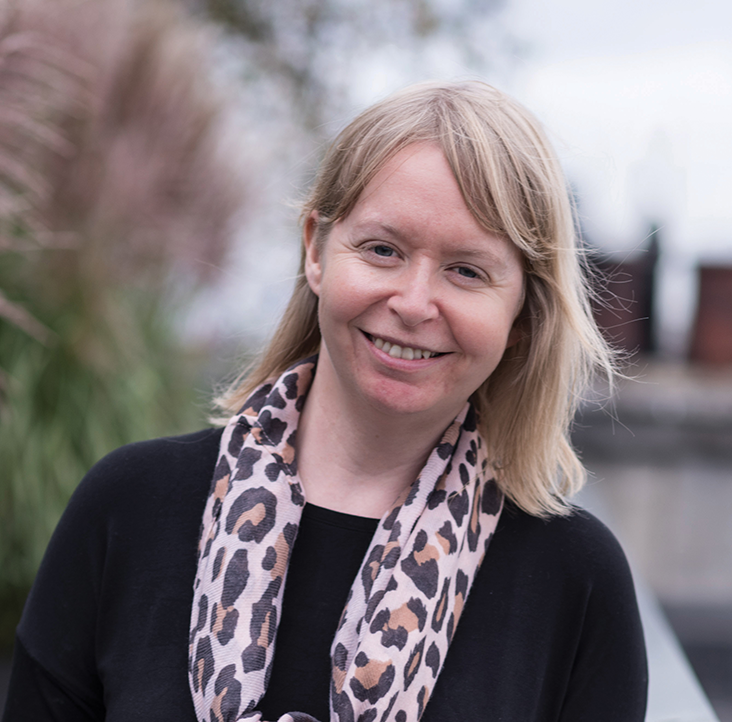Backing Northern Ireland’s communities: Why our grassroots campaigners are key to real change
Resource type: News
Atlantic Fellows | [ View Original Source (opens in new window) ]
Nicole Browne, Atlantic Fellow for Social and Economic Equity
Northern Ireland is on the edge of the United Kingdom in more ways than one. Brexit has led to the contested Irish Sea Border which puts a trade barrier between Great Britain and these six counties. This ‘post-conflict’ country experienced a ten day period of street rioting in April, which brought to mind the darkest days of our past, and yet barely raised a response from Westminster. Discussions about Northern Ireland’s future – within the UK or as part of a new united Ireland are intensifying. And as we move out of lockdown, another contentious marching season is underway, bringing with it a familiar seasonal tension.
But Northern Ireland is different in other ways. More than twenty years after the Belfast/Good Friday Peace Agreement, the socio-economic roots of the conflict remain unaddressed. And yet, in the gap created by the disinterest of Westminster, the distance of Dublin and the dysfunction of Stormont, grassroots campaigns are flourishing. Groups like Save our Sperrins have occupied a site in County Tyrone earmarked by Canadian Corporation Dalradian for a gold mine, and last month marched on Stormont to highlight the 37,000 objections to the plans. Alliance for Choice is making decriminalized abortion care a reality, in a place where the denial of a woman’s right to choose is a rare point of agreement between political foes. Human rights principles of equality, participation and accountability are embedded on paper in our peace agreement. But it is people on the ground who are bringing them to life. So as the shape of Northern Ireland’s future hangs in the balance, how can grassroots campaigners ensure their movements are strong, healthy and effective?
Often the simple things make the difference.
We must acknowledge the importance of conversations at community level – about lives, the very real issues they face, whether it be chronic damp in their homes or inadequate mental health care. These will be the spaces where people recognize the inequalities they individually face, are, in fact, a shared experience, attributable not to themselves, but as part of systemic failings and neglect. Through discussion we understand how they must be tackled, and can then begin to forge a way forward to do so. I learned this from the late Inez McCormack, an internationally renowned trade unionist and human rights activist who spent years organizing cleaners and domestic workers in Northern Ireland’s health service. She believed the simple act of truthful conversation to be transformational and described her joy at seeing ‘the glint in the eye of a woman who thought she was nobody but now believes she is somebody.’
We can and should believe in the inherent worth of our own day to day knowledge about the systems that exclude us. All too often we are persuaded that academic or professional knowledge is the only kind worth having, and the only type that can persuade decision-makers to do their business differently. And yet we can document our own lives – as groups in North Belfast did by capturing the damp running down a flat wall, or by recording the persistently low temperature in a draughty bedroom, comparing it to the UN definition of adequate housing as meaning ‘a home containing facilities for health, security, comfort’.
When we challenge, we must remember the important role tension and resistance plays in realizing change, and that to name an issue often comes with an unavoidable reaction. To speak of housing inequalities in parts of Belfast disproportionately impacting the Catholic community is to be stigmatised, in our post-conflict context, as being disruptive to the peace. Twenty years on, these problems of old are not supposed to exist anymore. As feminist writer Sara Ahmed reminds us in Living a Feminist Life: “when we give a problem a name, we can become a problem, for those who do not want to talk about the problem.”
Finally, we can create space for activists to gather, celebrate and learn. Activism can be life-enhancing work enabling us to connect with others in a journey towards our mutual vision of justice in our world. In Northern Ireland, as elsewhere, our challenges are great, and as Professor Meg Satterthwaite tells us, activists can ‘too often valorize martyr and saviour mentalities, and stigmatize wellbeing concerns’. We can understand that an individualized approach to self-care is not sufficient to redress the balance, and instead we can look at collective care initiatives like the Frida Fund Happiness Manifesto, which includes commitments to communicate with each other when we are overtired, disavow guilt, and or delete work emails from our phones. As they say:
“we believe that taking care of ourselves is in our best political and feminist interest, to take a deliberate stand in challenging the patriarchal, hierarchical and neoliberal systems that govern us.”
Twenty years of Peace agreements, protocols, promises of change and rights on paper have shown us that real change in Northern Ireland will not lie in the words written in any new constitutional arrangement, but in the empowerment of those who will be key to its implementation – the grassroots groups, the true authors of human rights.